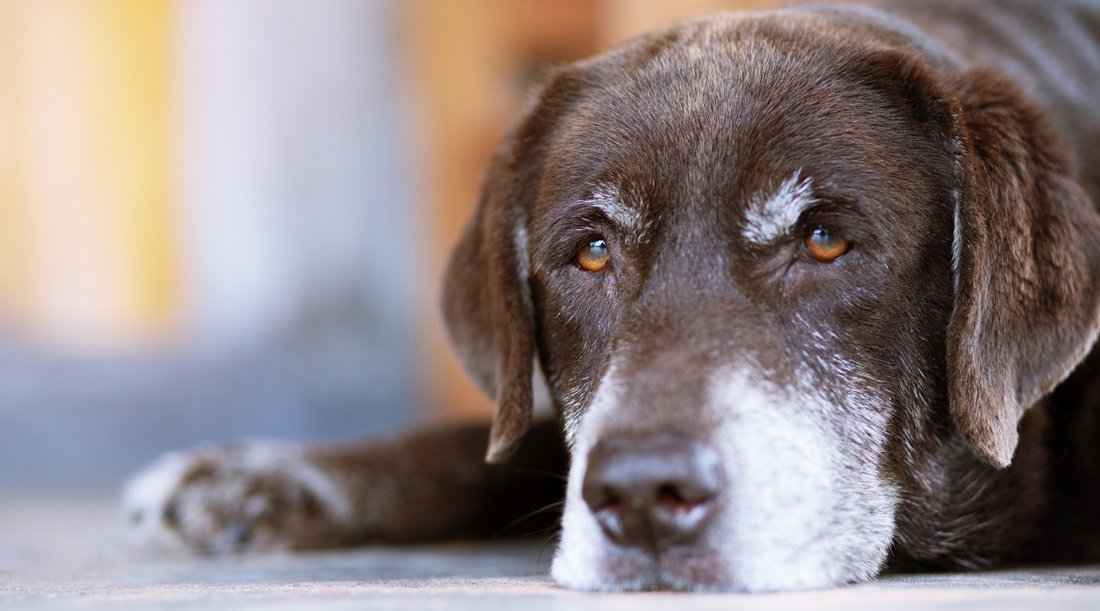Having the latitude to accompany your furry friends into adulthood is divine happiness. Though it can be bittersweet to witness them facing the challenges that come with aging. Dogs generally acquire their senior status around the age of 7, depending on their size and breed. Just like humans, our senior dogs can develop many similar health problems as they age, such as joint concerns, vision problems, heart diseases, and fragility. Our adorable canines might also display behavioral changes such as increased anxiety, disrupted sleep cycles, and confusion.
Fortunately, owing to progressive veterinary care and an improved nutritious diet, our canines can live now longer and healthier. Aging in dogs is often a gradual process, with proper care and management, you can ensure your beloved senior dog continues to live its life to the fullest! Here are some ways to care for a senior dog and make navigating through aging a breeze!
Tighten Up on Vet Visit
Senior dogs are more vulnerable to health issues and it would be a good start to double up health screens at the veterinary. Semi-annual examinations can ensure that our senior dogs are kept on top of medical issues and early detection which is crucial at an advanced age.
Keep Your Senior Dog Active
Keeping senior dogs active is especially important as they age. Being physically fit helps our senior dogs maintain a lean body which would release pressure from their joints and heart muscles. However, it is important to adapt activities according to your senior dog’s abilities. Physical activities might be more demanding for your aging pup, which means that they might need a little more encouragement. You can try adding some sparks to their exercise routine, like alternating between a safe summer swim and a stroll at a new park.
Optimize Your Senior Dog’s Living Space
It’s probably a good time to make some home updates to make it more comfortable and accessible to your senior dog. Swapping their old cradle for an orthopedic option can help to improve your dog’s sleep. Setting up pet stairs next to their favorite hang-outs and placing rugs on slippery surfaces are precautions you can take to avoid nasty falls. Another tactic you can incorporate is to remove bulky furniture from main paths to make it easier for a vision-impaired senior dog to navigate.
Maintain a Healthy Diet
While it’s hard to resist showering our pooch with their favorite food, maintaining a balanced and nutritious diet is especially important for our aging dogs. Excess calories can strain your senior dog’s heart, joints and decrease their life quality. You can also consider adding supplements to complement your dog’s diet. Omega 3 and joint supplements are helpful to maintain senior dogs’ heart and joint health.
Bump Up Grooming Sessions
Senior dogs can find it tougher to reach certain areas of their body. Being less active can also facilitate the development of painfully matted fur in senior dogs. Increasing grooming sessions can make your canines feel good and also an opportunity to spot any new bumps, cuts, or skin irritation.
Attentive to Your Senior Dog’s Teeth
Our senior dogs are at increased risk of oral issues such as infection, fragile teeth, and gum disease. Periodontal diseases can be agonizing and can lead to other serious health conditions such as heart and kidney diseases. Regular brushing and getting them professionally checked by veterinary can prevent our senior dogs from painful oral issues.
Keep Your Senior Dog’s Mind Sharp
Mental stimulation is equally important as physical exercise for your senior dog’s well-being. Keeping their mind sharp with stimulating activities such as hide-and-seek, hunting for treats, and dog-friendly puzzle games can help to keep their cognitive health in shape. And the added bonus, these workouts are fun and a great way to enrich your bond!
Lastly, and most importantly, giving your beloved best friend lots of love and treasuring every moment together is the best thing we can do for our senior dogs!

